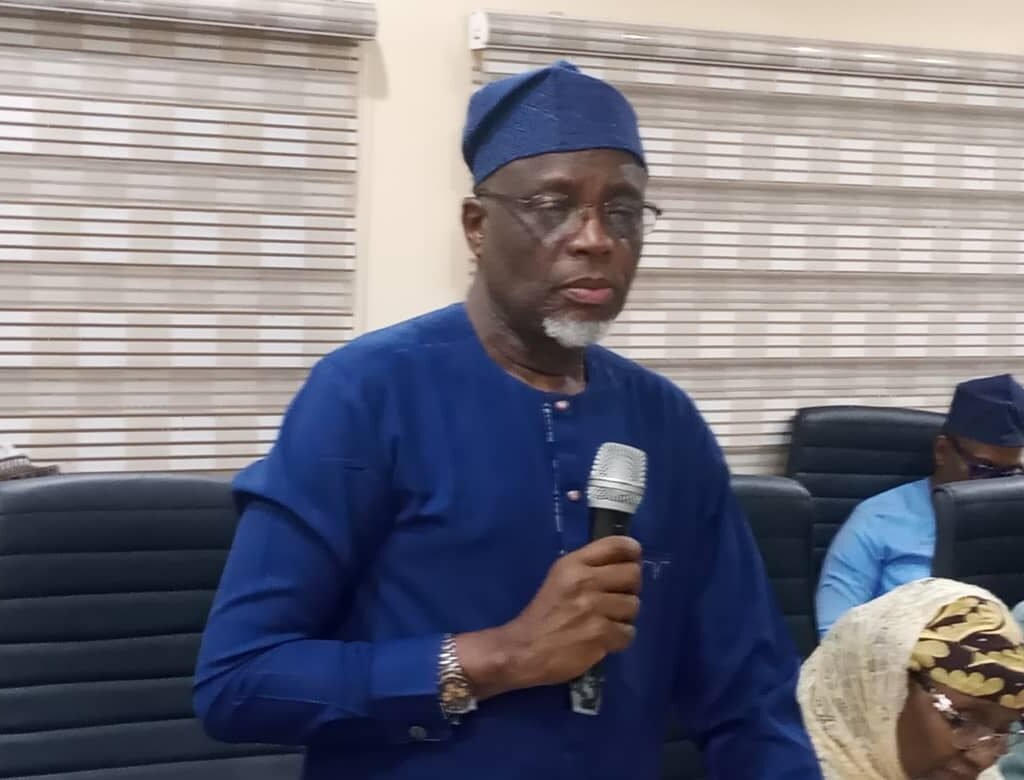
By Ameh Gabriel
ABUJA – In a bold move to rescue Nigeria’s deteriorating examination system, the Honorable Minister of Education, Dr. Maruf Olatunji, on Friday, May 30, 2025, received the Interim Report of the Ministerial Committee on the Improvement of the Quality of Examinations in Nigeria, pledging full support for sweeping reforms aimed at restoring integrity and fairness to the nation’s assessment system.
Speaking at the formal presentation in Abuja, Dr. Olatunji declared the situation a national crisis, citing rampant examination malpractice, the rise of “miracle centres,” and the risk of producing “millions of illiterate, poorly educated children” who lack critical thinking skills and life readiness.
“If students who study hard realize that others have access to exam questions days before, fairness is eliminated. How can they compete? This is a crisis we must tackle head-on. We have to restore sanctity to our examination system we simply have no choice,” the minister stated passionately.
He commended the West African Examinations Council (WAEC) and the National Examinations Council (NECO) for adopting technology-driven approaches like Computer-Based Testing (CBT), highlighting WAEC’s recent pilot as a step in the right direction.

“WAEC has made commendable progress. I witnessed the CBT system in action secure, efficient, and credible. NECO is also working towards implementing writing-based tech solutions. JAMB has already set the pace, eliminating nearly 100% of exam fraud. We must build on these gains,” he added.
Key Recommendations to Combat Exam Malpractice
In its interim report read out by Prof Ishaq Oloyede, Registral JAMB, highlighted the Committee laid out 11 far-reaching recommendations designed to tackle malpractice at every level structural, administrative, technological, and legal. The highlights include:
- Mandatory NIN Integration: All examination documents including certificates and result slips must contain a candidate’s National Identification Number (NIN), photograph, and date of birth to curb impersonation.
- Digital Profiling of Officials: All supervisors and invigilators must be registered with their NIN and linked to short codes (similar to JAMB’s 55019/66019) for tracking and accountability.
- No Candidate Swapping: While swapping of invigilators and supervisors will begin with the 2025 Private SSCE, the Committee ruled out candidate relocation due to security and logistical challenges, and the traditional printing of centre details on certificates.
- Pensionable Staff as Invigilators: Wherever possible, invigilators and supervisors should be public officials or pensionable teachers to ensure accountability.
- Standard Examination Halls: The committee emphasized strict compliance with physical standards, recommending a minimum of 1.8 square meters per candidate and disallowing waivers for schools lacking appropriate infrastructure.
- Surveillance Technology: All centres must be equipped with stationary CCTV cameras, mini control rooms, joint central monitoring hubs, and body cameras for real-time surveillance.
- Early Identification: A unique educational code, linked to each pupil’s NIN, should be generated upon entry into basic education and used throughout their academic journey.
- Special Tribunal for Malpractice: The Committee called for the establishment of a National Examination Malpractice Court/Tribunal through legislation by the National Assembly for speedy prosecution and deterrence.
- Review of the 1999 Act: The committee criticized the non-implementation of the 1999 Examination Malpractice Act and recommended a complete review for effective enforcement.
- Accelerated CBT Implementation: Rather than wait until 2027, the Minister’s directive to begin full CBT for objective exams in 2025 for private candidates and 2026 for school candidates was affirmed.
- Overhaul of Continuous Assessment (CA): Citing widespread fraud in inputting CA scores, the Committee urged the Nigerian Educational Research and Development Council (NERDC) and relevant FME agencies to urgently review and sanitize the system.
A Call for Collective Responsibility
Dr. Olatunji reiterated that technology alone cannot solve the crisis without collaboration across all levels government, examination bodies, teachers, parents, and communities.
“This isn’t just about passing exams. It’s about national survival. A country that educates its youth through fraud will produce leaders and workers who perpetuate that fraud. We must act now,” he said.
The Minister emphasized that while JAMB’s success shows what’s possible, other bodies must follow suit with unified commitment and digital innovation.
A Defining Moment for Nigerian Education
The submission of the committee’s report and the minister’s firm response mark a significant step in Nigeria’s long battle against examination malpractice. If the recommendations are implemented effectively, they could transform the educational landscape, restore public trust, and prepare students not just to pass exams but to excel in life.








